Expats fix a road and a bridge in Panama
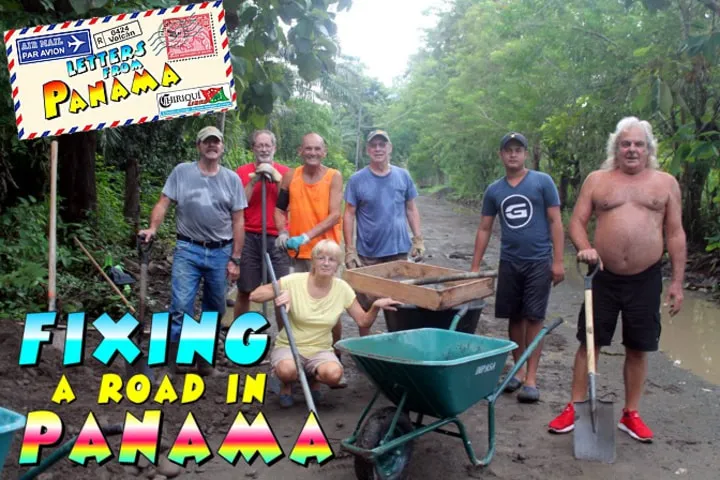
This is more than just an article about fixing a road. You could be reading this in the cold and possibly snow covered regions of Canada, Britain or the United States. You may have thought of possibly moving to Panama, where in our entire history we have never had to shovel the white stuff, ever!
However, occasionally, we do have to shovel some sand, grit and rocks to fix potholes in our roads.
I should point out that Panama does have good roads. The road to our small port city of Puerto Armuelles is four lane. Asphalted, smooth, with crash barriers and as far as I can tell has no potholes. The rural roads in Panama are a different kettle of fish. Yes the authorities or MOP (ministry of Public Works) has the responsibility to take care of the roads. And yes, we do see them grading and rolling rural roads. The problem in a nutshell is that it does rain a lot in Panama. You can grade and roll a road one week and a downpour could ruin it the following week.
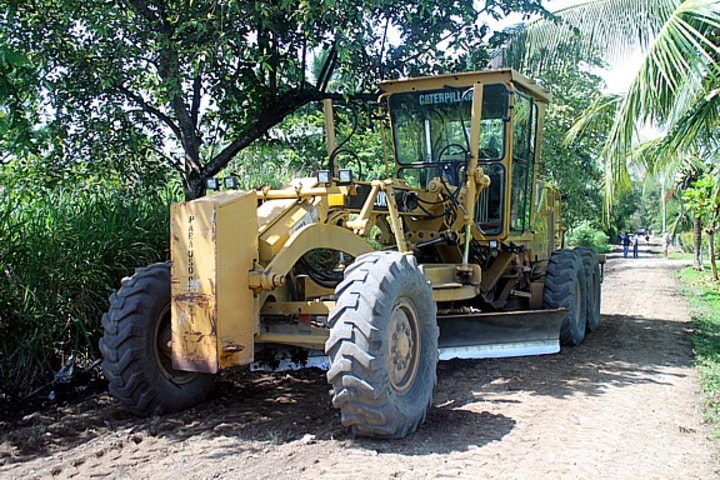
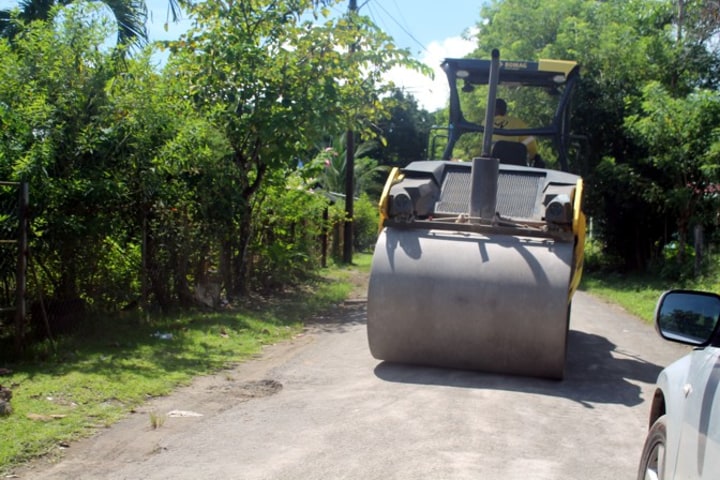
So what do the people, or should I say expats, do in such circumstances? Well they get together, raise a few dollars for materials and then go out and fix the problem.
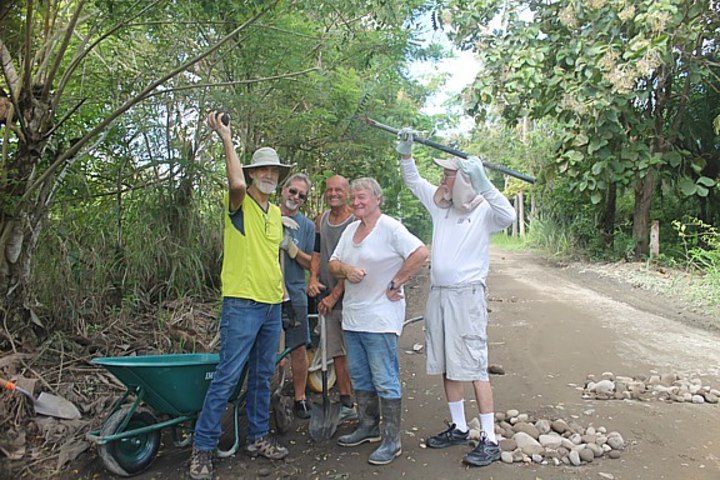
This happened in our little community of San Ignacio de Cucuy, about 13 kilometers East of Puerto Armuelles. The word went out and everybody, so I am told, chipped in $25 for road fill called “Ripio.” Ripio, comes from local riverbeds. It is a combination of rocks, gravel and coarse sand. Ideal for adding as an aggregate to concrete or for filling holes in rural roads.
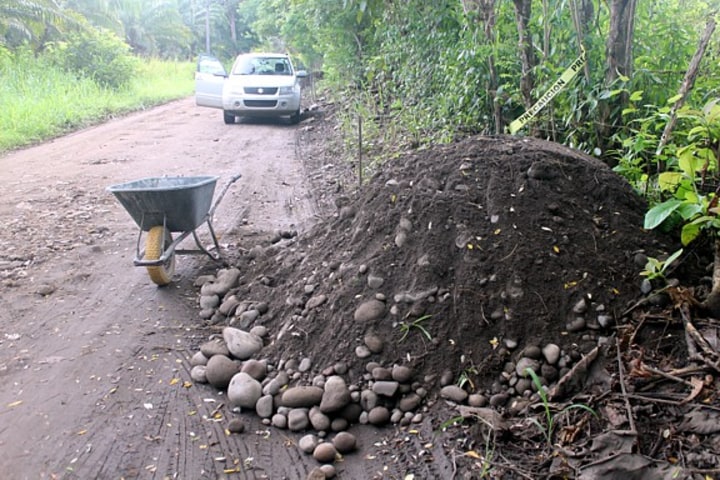
A Tuesday morning in November was the start date, and promptly at 9:00 eleven rather aged expats turned up with their wheelbarrows and shovels to start work.
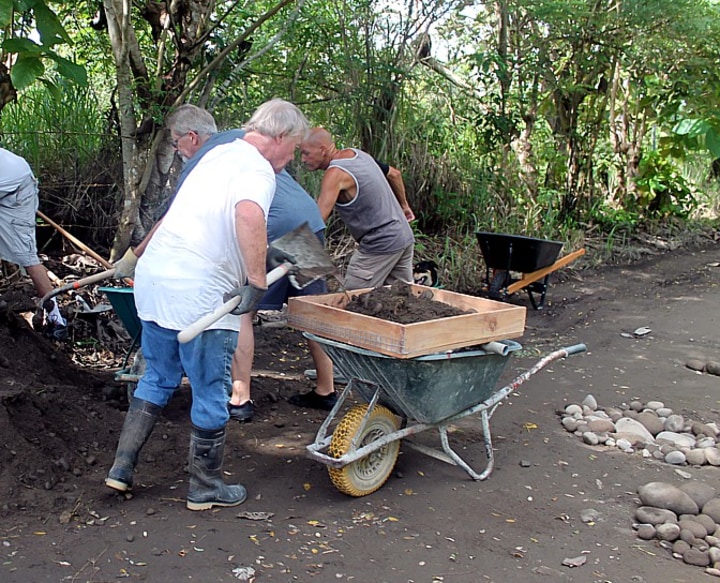
The process is simple: you place a coarse sieve on top of a wheelbarrow, shovel some ripio into the sieve, then shake it. You first place the rocks into the pothole and then as a final dressing, you pour the grit on top.
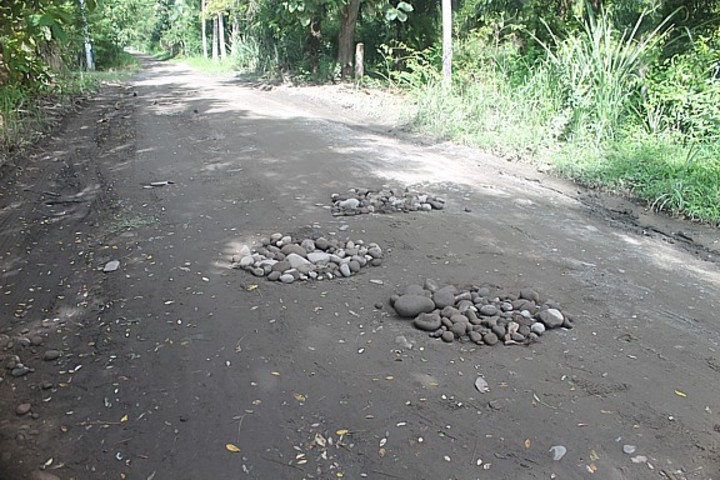
Within an hour we had sieved, sorted and shoved 3 cubic meters of fill into holes. Some judicious driving back and forth soon had the filled holes well and truly compacted. I looked around at my fellow road workers and asked their ages. I had 63, 64 and 65 years old. I added that I was nearly eighty (actually I am 78, but near enough) We were a mixture of expats, mostly Canadians and Americans. We were all thrilled to see two young local Panamanians join us. Now we were truly an International crew.
The group of seven or so men and three hardworking wives have regularly come out on consecutive Tuesday’s. Now we have a road that no longer jolts us from side to side as we drive to the supermarket.
Wait there’s more. There is a small bridge that connects our road to the small village of Los Pinos. Ten families live here and they have no regular transport into town. Local taxis have refused to service their community because of the poor condition of the road and the kamikaze bridge. Last week, thanks to the help of a crew of people from the village, they did a basic repair on the bridge. I can report that yes, taxis are now using the road and crossing the bridge.
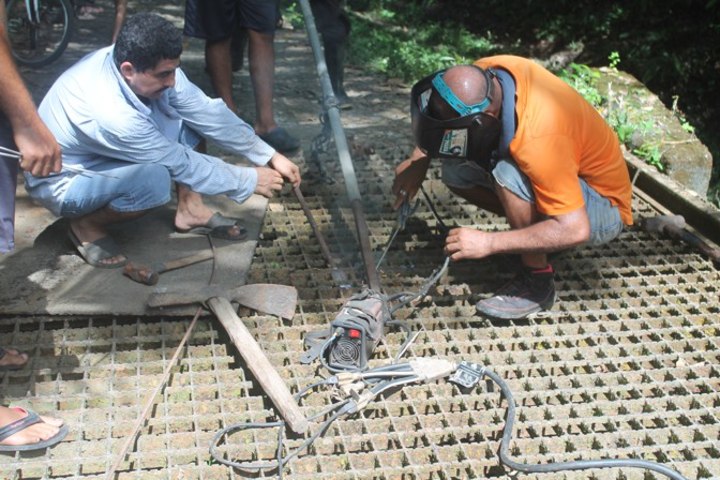
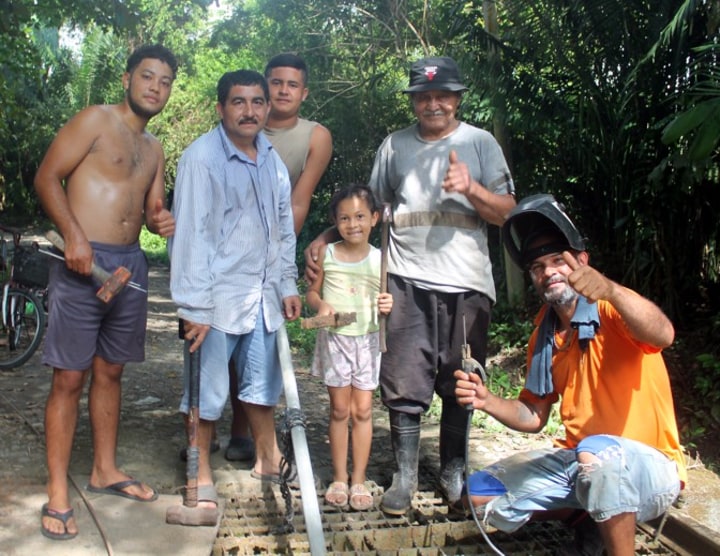
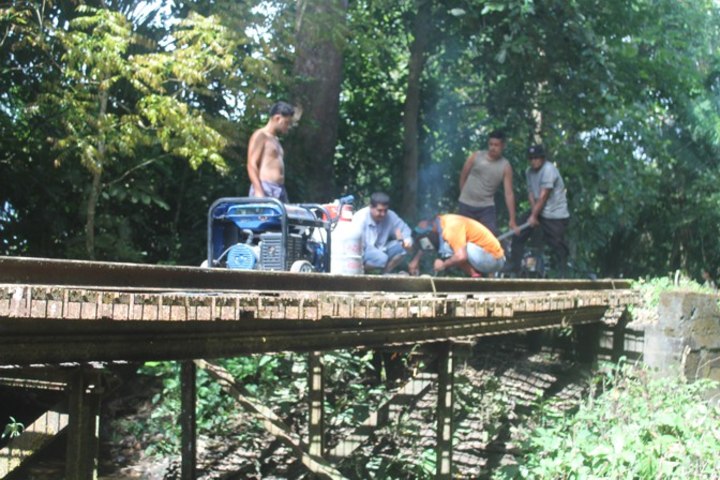
So what do we take away from this. If you have considered coming to retire in Panama you will find that life is good. The people are friendly and ( if you come to Puerto Armuelles) you will find a good-sized bunch of Expats. People from all walks of life that will to get off their rear ends and work for the good of the community. This is not paradise. However, if you want to live in an affordable, idyllic climate, my friend, we have big hearts and welcoming arms.
